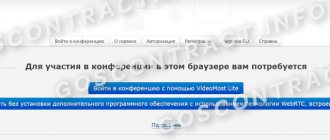When is it necessary to file a petition with the court - conditions and rules for filing a petition with the court?
When submitting an application to a government agency, you should adhere to certain rules. First of all, contact the court only officially, by writing a statement by hand.
Be sure to leave a space at the beginning of your petition so that court officials can write the case number.
Please provide the following information in your application:
- Name of the court you are applying to.
- The applicant’s full name and contact information: residential address, telephone number, email, Skype and other information that will facilitate quick communication with you. If the plaintiff is an organization, that is, a legal entity, then it is worth indicating the full name of the representative of the company and note the address of its location.
- Full name of the defendant and his contact information: for an individual - the address of residence, and for a legal entity - the address of location. If you have more information, you should indicate it as well.
- Purpose of the petition. Describe why the application is being submitted, correctly formulate the violation or threat that was committed against you (the plaintiff).
- The circumstances under which the rights, freedoms or interests of the applicant were violated.
- Evidence of what is happening.
- Requirements - what you want from the court and the defendant.
- Cost of the claim and calculation of other court monetary amounts (for reporting).
- Information about the applicant’s pre-trial appeals to the defendant, if any. For example, communication with a specific request.
- List of all documents attached to the application.
The rules for filling out the application are described in detail in Art. 131 and 132 of the Code of Civil Procedure of the Russian Federation.
Another rule - do not forget to sign the document. If he is represented in court by another person, then he must have a signed power of attorney to conduct the case.
How to file a petition in court - which petition is better, written or oral?
The written form is always a winning option. A written statement is better because:
- This is an official request that you are required to respond to.
- The document is not unfounded and is based on arguments and evidence. For example, expert opinions can be attached to the application.
- You will establish yourself as a law-abiding citizen who knows his rights and is not afraid to defend them in court.
You should be aware that the petition may be rejected by the court. According to Article 135 of the Code of Civil Procedure of the Russian Federation, the return of the statement of claim occurs for several reasons:
- When the pre-trial procedure for resolving a dispute between the plaintiff and the defendant is violated.
- If the case is not decided by this court.
- In the event that the application is submitted by an incapacitated person.
- If the petition is signed and presented to the court by a person who does not have the right to take these actions.
- When the same case is pending in court regarding a dispute between the parties.
- If the plaintiff himself declared the return of the petition.
If your application does not fall within these conditions, you can safely file it in court. In case of incorrect submission, all attached documents will be returned to you along with the application. In addition, they must explain to you the reason for the rejection of the application and issue a ruling with explanations. If it was not provided to you, then demand an explanation by asking a series of questions:
- Which court should I go to?
- How to eliminate the shortcomings that prevent the initiation of a case?
Once you have corrected all the errors, you can reapply to the court.
Consideration of a case in the absence of a third party
Third parties are more likely than other participants in a civil case to inform the court about considering the case without their presence. This is because the decision does not directly define their rights and obligations. However, third parties should take into account that they are involved in the case, since the court’s decision may affect their rights and obligations (Article of the Code of Civil Procedure of the Russian Federation). A decision in a civil case can be used subsequently as having prejudicial force when claims are brought directly against a third party (for example, in a recourse claim).
We recommend that a third party inform the court about the possibility of considering the case in his absence by filling out a petition using our sample. In addition, a third party has the right to submit a written response to the statement of claim, in which he can reflect his position on the issue being considered in court.
| Note! |
| Feedback on the statement of claim |
We suggest using our sample application (petition) for consideration of a civil case without the participation of a third party.
Main types of petitions in court
Most statements fall into the following categories:
- Carrying out examinations. Petitions are submitted for the purpose of ordering judicial audits.
- Progress of execution. Applications are made to influence the progress of actions that the opposing party should have performed. The document is adopted after the decision enters into legal force.
- Court expenses. This group contains claims related to resolving issues of state duty and other expenses.
- Restoring deadlines. This category includes petitions that resolve disputes over missed and reinstated deadlines under the law. For example, the statute of limitations, the period for going to court to appeal any actions, or the period for filing labor disputes.
For what purposes are petitions submitted?
The person to whom the application is addressed, according to Chapter 15 of the Code of Criminal Procedure of the Russian Federation, is obliged to consider it within the time period established by law.
There are two main purposes for filing an application:
- Establishing circumstances relevant to a criminal case. According to the law, the suspect or his defense attorney may request from the judge an additional investigation, repeated interrogations, a forensic examination or any other investigative measures if new circumstances of the case, the discovery of which the above-mentioned persons request, are important for the current proceedings.
- Ensuring the rights and legitimate interests of the person filing the petition . The applicant has every right to appeal to the judge to demand respect for his rights and legitimate interests during the proceedings, which include: providing upon request additional copies of the case under consideration, communicating his opinion on the case, applying security measures in relation to the applicant, etc.
How to submit a petition to the court - deadlines, procedure for filing and consideration of the petition in court
You can submit a petition at any time, regardless of what stage of consideration the case is at. As a rule, all applications are considered immediately after they are submitted. Please note that the petition on your behalf must be considered and accepted within five days from the date the paper is received by the court (Article 133 of the Code of Civil Procedure of the Russian Federation).
Based on the filed statement of claim, the judge will make a ruling and decide whether to initiate a case. The deadline for filing an application is 6 months.
Filing a petition to the arbitration court
Only participants in a court case can submit an application to this government body. A petition filed with the Arbitration Court may:
- Include evidence in the case that was not available before.
- Demand the return of lost documents.
- Conduct an inspection or examination.
- Suspend the trial.
Since petitions are submitted on various issues, there is no general writing template. You can rely on the norms outlined in Articles 125 and 126 of the Arbitration Procedure Code of the Russian Federation. Examples of statements:
Filing a petition to the criminal court
The victim or a relative of the person against whom the act was committed and resulted in his death can submit a statement to the criminal court.
The application must be submitted in writing and must include the following information:
- Name of the authority to which the applicant applies. In this case, it is a court located in the area where the criminal act took place.
- Description of the crime, in particular the place, time and all circumstances of its commission. The investigator should help you with this.
- Request that the case be considered.
- Name and contact information of the victim.
- Information about the person in respect of whom the petition is sent.
- A list of witnesses who can come to court later.
- Applicant's signature.
An example of writing an application to a criminal court:
Submitting a petition to the Magistrate's Court
The Magistrate's Court hears cases on the following issues:
- Civilian. For example, about divorce, division of property or collection of alimony.
- Administrative. For example, about the deprivation of a driver's license.
- Criminal. Only cases of private prosecution are examined, that is, those sent by the victim himself or his representative.
By filing a petition, you can also ask for an examination, interrogate witnesses, bring in new evidence, or request documents. It is important that the application be drawn up according to the standards that we described above. Sample:
Filing a petition to the city, district and regional court
You should also contact the courts of first instance with a written application. It should indicate all the details of the parties’ representatives and other necessary information. Detailed filling standards are described in Art. 131, 132 Code of Civil Procedure of the Russian Federation.
A few sample statements:
Filing a Petition to the Court of Appeal
The requirements for the form and content of the appeal are described in Art. 322 Code of Civil Procedure of the Russian Federation. Do not forget to indicate the case number and the decision (ruling) of the court that is subject to appeal, and also briefly and clearly consider the reasons why this decision is incorrect.
Samples:
Filing an application to the court of cassation
In accordance with Article 378 of the Code of Civil Procedure of the Russian Federation, the cassation appeal should indicate information about the court, the applicant and other persons, and should also:
- Note the courts that have already been addressed and the decisions they have made.
- Indicate the decisions that need to be appealed.
- Write about violations of substantive and procedural rights committed by the courts.
- Do not forget about the request and requirements.
Sample:
Filing a petition to the constitutional court
When contacting this government body, it is worth reviewing the law “On the Constitutional Court of the Russian Federation” dated July 21, 1994. Articles 37 and 38 detail the application requirements.
Example:
Filing a Petition to the Supreme Court
The requirements for applying to the supreme court are almost the same as elsewhere. They depend on the category and title of the application. You can read more about the standards in chapters 35, 36.1, 37 of the Arbitration Procedure Code of the Russian Federation.
Example:
Filing a petition to the arbitration court
The application for this court must comply with the norms of the petition that is sent to the arbitration court. Just don’t forget that you must indicate “arbitration court” in the header.
Sample:
Sample request to postpone a court hearing
Drawed up when it is impossible to ensure attendance at a court hearing. The reasons must be valid, in accordance with Art. 167 Code of Civil Procedure of the Russian Federation. The party must also provide evidence that the circumstances preventing attendance at the court hearing were valid. The court has the right to refuse to satisfy the petition. The time of the next hearing is determined by the judge taking into account his own employment, the wishes of the parties are taken into account.
According to judicial practice, the following reasons are accepted as valid:
- health status;
- actual impossibility of presence (business trip, departure);
- participation in another court hearing (for legal entities only if it is impossible to ensure the presence of another representative), etc.
Example of a completed document:
What to do if the court refuses to satisfy the petition?
The judge may not accept your request. According to Article 134 of the Code of Civil Procedure of the Russian Federation, refusal occurs under the following conditions:
- If the consideration of the case is not within the competence of the court to which the application was filed.
- In the event that the application was submitted by a body that does not have the right to protect the interests of an individual.
- When the petition does not describe the violation.
- If a decision has already been made on this issue/case or the parties have reconciled in a global government body.
- Subject to an arbitration decision. The petition may be accepted if the court to which you are applying not for the first time has not issued you a writ of execution notifying you of the decision of the arbitration tribunal.
You will learn about the refusal to accept the application within 5 days from the date the document is received by the court. It should be sent back to you with all the papers included with it. If the judge refuses, then you do not have to try again with the same petition. Of course, you can file a private complaint with a higher court if your rights have been violated.
The judge also has the right not to consider the petition and leave it without movement for some time. According to Article 136 of the Code of Civil Procedure of the Russian Federation, he can provide a reasonable period for the plaintiff to correct errors in the document. If the applicant follows the instructions within this period, the application filing date does not change and remains the original date. And if the plaintiff does not correct the error, then the petition with all the attached papers is returned to him. Of course, the applicant can challenge this point by filing a private complaint with a higher authority. The appeal must be considered within 30 days.
How does the court respond?
The law obliges the court to make decisions on stated requests after other participants in the process speak out on this matter. However, there is no time limit for consideration of the petition in civil proceedings.
Some judges, dealing with complex cases, allow the parties to express their requests, but make decisions on them not immediately, but after some time. Usually everything is decided in one meeting. As a rule, the judge makes a decision on the spot, without retiring to the deliberation room.
If the judge unreasonably delays the resolution of the petitions, the party has the right to complain to the chairman of the court about the red tape with a request to take measures to speed up the proceedings.
A negative court decision on petitions is permitted to be appealed. If there is objectively no time for a complaint, the same petition can be filed when considering the case on the merits in the appellate instance.






